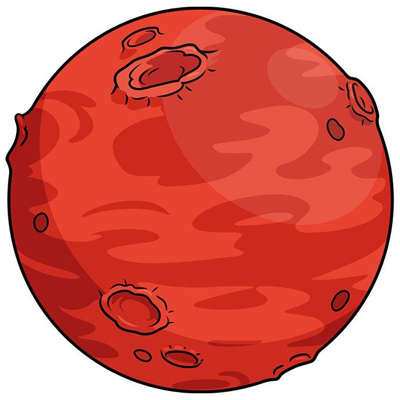That the 13th amendment outlawed slavery.
Nearly anything abouth Pre-Columbian North and South America. Turns out, there was no homogeneous “Native” culture, just as there was no “European” culture. Every different group had their own traditions and stories. They all were complex people, not one-dimensional savages or pacifists. We should simply view them as any other people.
That by not being ridiculously overtly bigoted, they have actually interrogated and rejected their own bigotry. The former is basic and mostly relies on social conditioning. The latter requires reading history and people who are criticizing things with which you may identify and therefore take very personally. The latter is not taught in school and school does not provide the tools (outside of literacy) to do so, so it’s a difficult, painful, abd regrettably rare thing to see, usually requiring sone trauma to change.
Going through the process of discovering I was trans and surrounding myself with trans people really made me re-examine how little work I’d done on issues of race, among other things. So many of the little passive aggressive things I found myself getting annoyed at cis people doing, I also found myself doing to people of color. Nothing particularly awful, but definitely inconsiderate.
In this regard I’m probably an ignorant simpleton, so what would be an example of common behavior that people think is fine but is in fact inconsiderate or offensive to others?
100%! And it’s structurally ingrained, so it involves a very un-fun process of relearning certain habits that don’t feel that bad until you force doses of empathy on yourself, the latter of which I think is in the neighborhood of your experience. It means you have to criticize, forgive, and change yourself, which I personally don’t enjoy even though it’s so important.
PS happy pride!
Pffffft maybe you, but I don’t have cognitive biases! Anchor pricing doesn’t work on me either because, raises nose, I know all about it.
Birds!
That the first amendment and free speech are the same thing
People believe that picking 1, 2, 3, 4, 5, 6 as your lottery ticket numbers is insane, because that would have a insanely low/lucky chance of being picked like that. If all numbers are chosen randomly, it is the same chance. No matter any combination of any numbers chosen, 1 ticket has 1 in 13,983,816 chance of being the jackpot numbers. (For US Powerball, specifically)
However, don’t the odds of splitting your winnings increase if you pick something more likely to be chosen by others?
Well yeah, but splitting winnings is secondary to actually winning. With the amount of people who religiously avoid sequential numbers, I guess you’d have less odds for picking it with someone? 'Cause at least here, the quick lotto ticket where they pick numbers for you avoids sequential numbers for this very brain worm that isn’t true.
The Bibel
I’ll add that most people think Noah took two of each animal onto the ark. It was seven of the male and female of the clean animals, and two of the male and the female of the unclean animals.
That looking too closely at the screen will blind you or damage your eyes. This myth originated decades ago in the 1960s from an advertisement by a television manufacturer. Basically in 1967 General Electric reported that their color TVs were emitting too many x-rays due to a factory error, so health officials recommended keeping children and pretty much anyone else at a safe distance from the screen. The problem was soon resolved, but the myth endured.
If you ask me I would say that x-ray radiation has little to do with going blind, I have no idea if radiation can actually make you blind, but it’s funny how somehow eye diseases got in the way as the only possible consequences in the myth just because we use our eyes to watch TV.
Mmm. I worked on CRT screens when I was in the US Navy and had some CRT monitors in the past.
After a long session, my eyeballs 100% felt ‘burnt’ inside.
Good ol’ desktop particle accelerators.
CRT screens generate bremsstrahlung (x-rays) from slowing electrons, so the front piece of glass is normally made of lead glass, or barium-strontium glass to block it.
After the General Electric incident, testing showed that nearly every manufacturers TVs were emitting too many x-rays. This led to the recommendation to stay 6 ft. away from the TV when it was on. The FDA then later imposed limits on how much radiation a TV was allowed to emit.
With the these regulations, if you were to absorb all x-rays from a CRT for 2 hours a day, every day, you would get 320 millirem per year (comparable to the average US background radiation of 310 millirem per year). See here, as well as this article.
Edit: Also, significant doses of x-rays can blind you. Radiologists in medicine particularly have to shield against it, since they are exposed to it every day, and exposure builds up. See here and here.
Edit again: Wasn’t paying enough attention. That last source talks about ionizing radiation specifically, so not x-rays.
I always think about when I was taught about taste and the human tongue back in grade school, they had these diagrams about zones on the tongue corresponding to sweet, sour, bitter, etc. like a “taste map”. I’m not sure how many generations were taught about it but turns out it just isn’t true at all. So, not like it’s important but you got a lot of misinformed folks out there in regards to taste lol
That always confused me as a child, since it was super easy to just test it for yourself. Turned out salt tasted salty regardless of where on your tongue it was, the same for the rest of the flavors.
Yup I remember thinking to myself at the time that I must be tasting incorrectly or somehow my tongue is different from everyone else lol.
For anyone interested https://en.wikipedia.org/wiki/Taste#Functional_structure
I wonder why they teach it too. Why teach misleading information that has no benefit but give people a wrong impression on how taste works
Most school science is oversimplification by design. It’s part of the learning process. Yo first learn colors, then when you are ready can learn about wavelengths, color spaces, biology of the eye, color psicology and many many other knowledge fields.
Even when you get into the anatomy of the eye you get “false” information, like the “perfect” cones that only percibe one color, or the misconception that every color is equal. More advanced education gives you more context and nuances.
In the taste and tongue case can be useful to explain that senses are the product of discrete sensors. That you don’t taste with your tongue but with specialized little taste buds. The different concentrations are mostly real, so the tongue map is a first step, even being so so far from the objetive and complex truth.
The problem is people that think they only need whatever high school education they got to be experts in pandemics, gender, biological sex, business, economics, history, politics and everything else.
Take note that I’m not only talking about a formal education. You can really learn a lot (most things? Maybe everything?) by yourself. But you have to be critical with your sources. You have to know how to learn. You have to understand how little you know about everything and how much you still have to learn.
Most “do your own research” people in the internet do not do actual research, don’t know how to do research and I don believe they know what research is.
They are good drivers.
Thinking that there are different learning styles probably helps poor teachers develop better content though.
Wait does that mean I’m just dumb?
… people say they have visual photographic memories, and I know musicians who can sit at a piano and play a song they only heard one time. But I don’t have any idea of the percentage of people who have these talents.
With !neurodivergence@beehaw.org you can clearly find patterns of minds who have problems with language processing. I personally do better with reading than I do auditory language.
the internet is full of people with problems with language processing 😃
Exactly.
That “Nike” rhymes with “Bike”.
I will start pronouncing bike like nike
Wait, it’s not pronounced like that?
No, it’s pronounced in two syllables, as so: “Ni-key”, with the first syllable pronouncing the I as in the word “I”. It’s named after the Greek goddess of victory.
Ok, i pronounced Nike wrong for entirety of my life. Thanks for info.
True, it doesn’t rhyme with “Nike”. It does cough through the tough bough, though
That they’re right. You should be able to question your own opinions. A lost art, it seems
Beware of imposter syndrome, though. Believing you’re infallible is unhealthy, but so is the opposite.
This
That the average person will swallow 8 spiders a year in their in their sleep.
Every one knows that its closer to 1000 spiders.
Spiders Georg really threw the average off


















